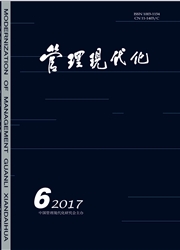

 中文摘要:
中文摘要:
哈萨克斯坦是"丝绸之路经济带"上中亚地区较为发达的国家,是中国向西开放进程中最重要的经济及金融合作国家之一。文章对哈萨克斯坦独立以来的货币政策实践情况进行详细的考察,并构建VAR模型对其货币政策效应进行检验。结果显示,短期内利率政策对调控物价水平、抑制通货膨胀更为有效,但是利率无法影响经济产出;货币供给量政策对增加国民收入、刺激产出更为有效,但对调控物价水平的影响较弱。目前,哈萨克斯坦央行的货币调控框架面临着向通货膨胀目标制的转型。
 英文摘要:
英文摘要:
Kazakhstan is the most developed economy in Central Asia along the Silk Road economic belt, one of the most important economic and financial cooperation countries of China in the process of China's opening to the west.This paper studied the Kazakhstan's monetary policy practice since its independence and tested the effect of its monetary policy by applying VAR model. The results showed that the interest rate policy is more effective on regulating the price and inflation in the short term, but will fail to affect economic output. Money supply policy increases the national income and stimulates more efficient output, but is weak in its the impact on the price.
 同期刊论文项目
同期刊论文项目
 同项目期刊论文
同项目期刊论文
 期刊信息
期刊信息
